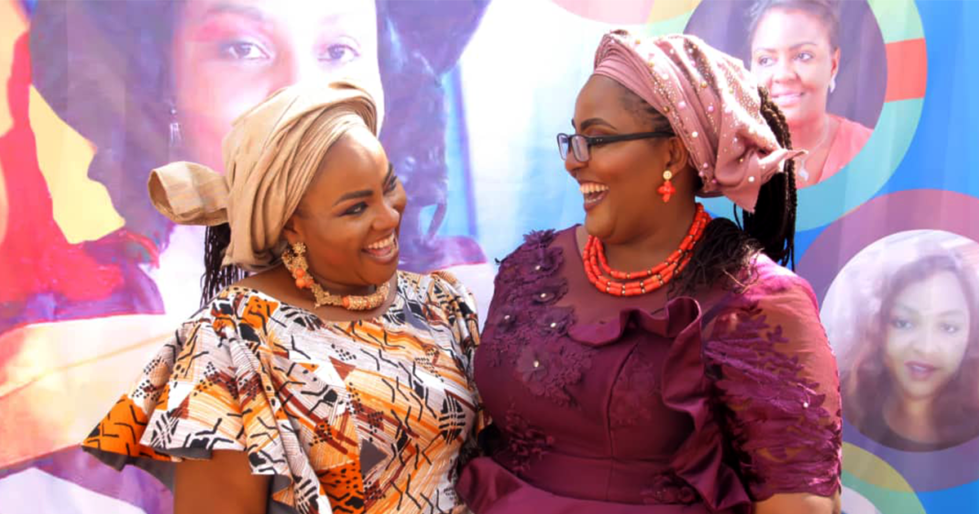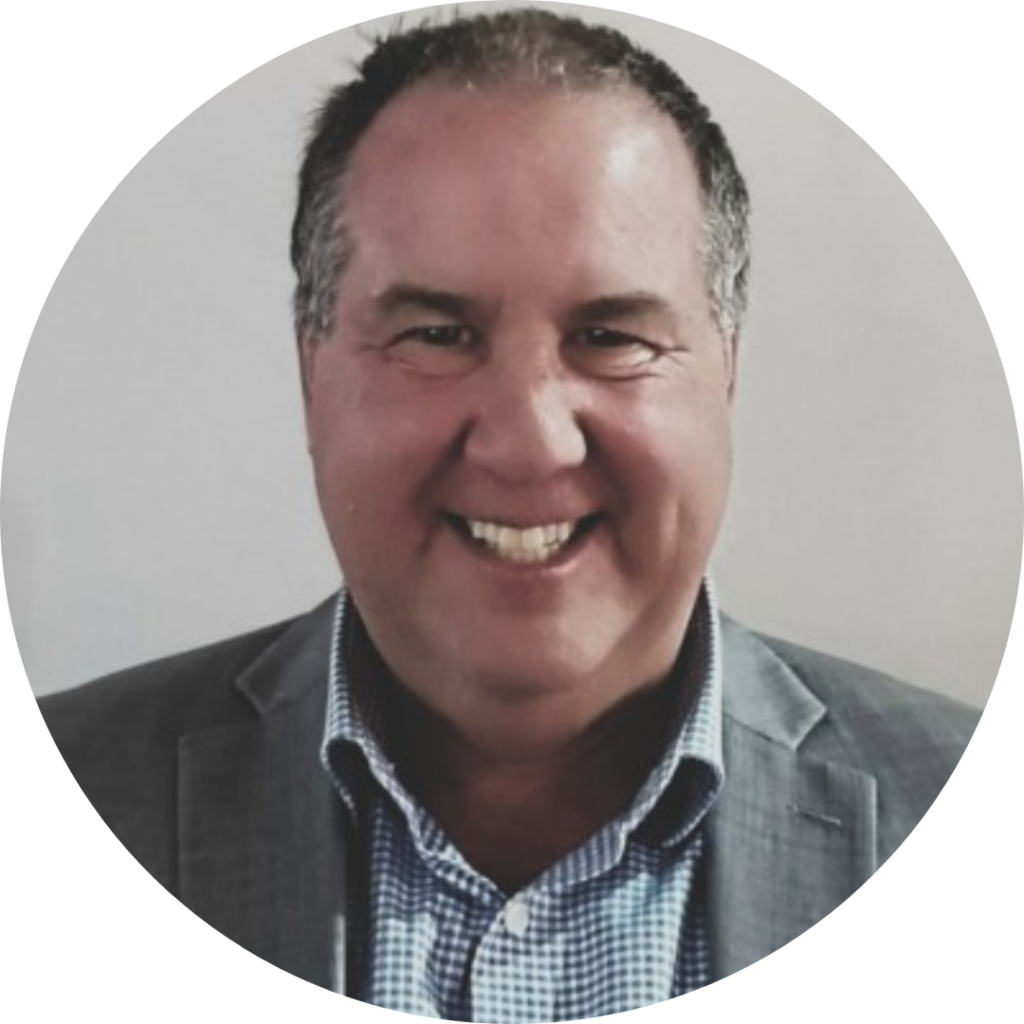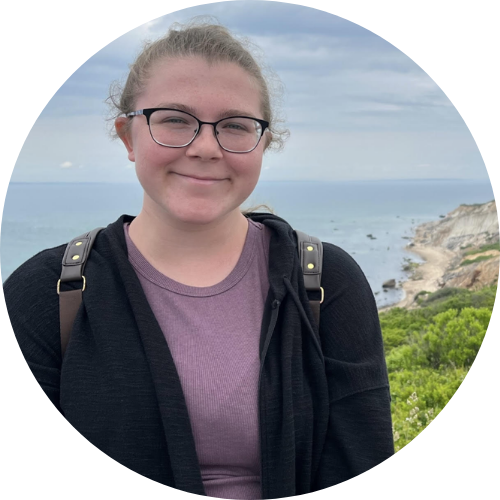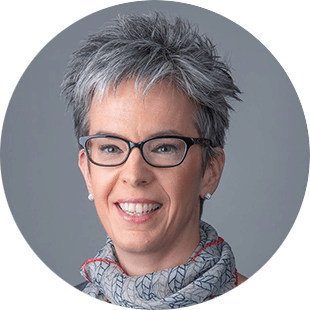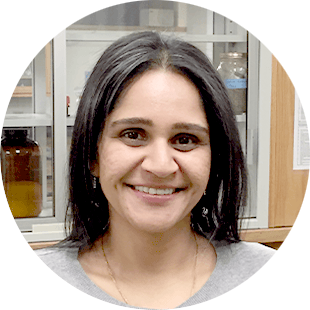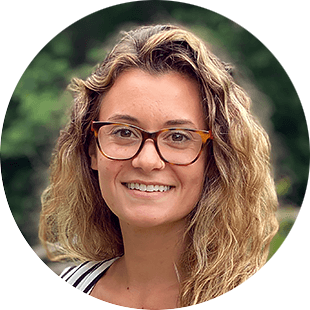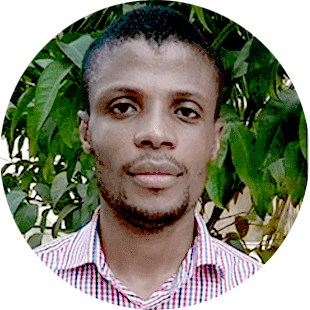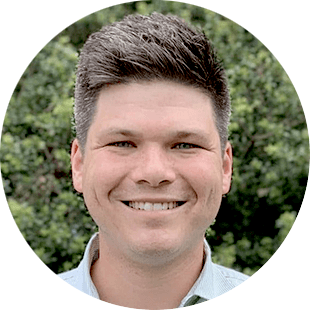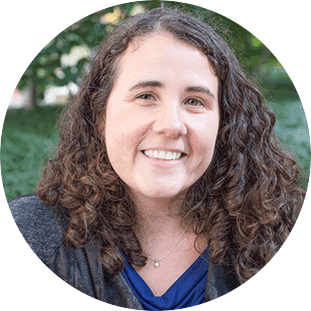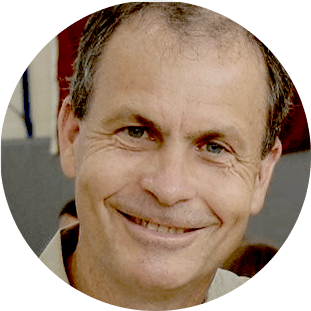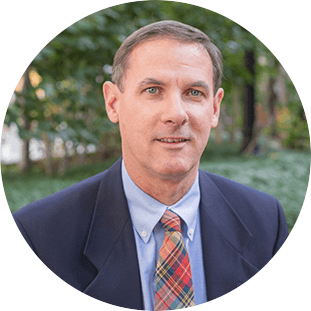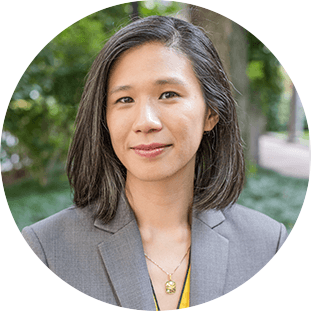Pictured above: Dr. Akhere Omonkhua, a professor of medical biochemistry at the University of Benin, with her twin sister Dr. Odion Omonkhua in Igbo-Ora, Nigeria, also known as “Twin Town” because of its high rate of twin births.
It might be the okra leaves. Or the yams … or maybe the cassava? It could also be genetic.
No one knows why Igbo-Ora, Nigeria—also known as “Twin Town”—has one of the world’s highest rates of twin births.
Years ago, two Nigerian scientists dreamed of joining their scientific expertise to search for answers, but their hands were tied without the right equipment… until they each received an Instrumental Access award.
Now, they are collaborating and pursuing this work—which could have the potential to unlock new avenues of research and treatments for infertility!
Doubling down on new research
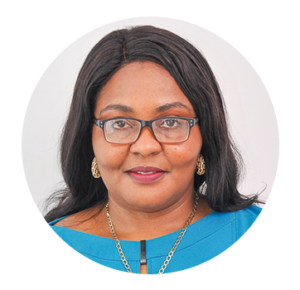
Two Instrumental Access awards are enabling the joint investigation of environmental and genetic factors that could explain the extremely high rate of non-identical twins (commonly called dizygotic, or DZ, twins) born to Yoruba families in Igbo-Ora.
Prof. Akhere Omonkhua (right), a professor of medical biochemistry at the University of Benin (UniBen) in Nigeria, is a DZ twin herself. To gain clues to dietary factors that might explain the high DZ twinning rate, she first surveyed the food traditions and beliefs of the Igbo-Ora community members.
She theorizes that it could be the high consumption of cassava and yams or some other staple vegetable.
Yams and cassava naturally contain compounds called phytoestrogens. Many phytoestrogens are known endocrine disruptors, which could impact a woman’s ovulation—and therefore be implicated in twinning.
To date, the most-cited resources for this twinning phenomenon are from Patrick Nylander, a British gynecologist who studied twinning rates in Igbo-Ora during the 1970s and 1980s.
But previous approaches didn’t harness the power of molecular biology, explains Prof. Roseangela Nwuba of the University of Medical Sciences, Ondo (UniMed).
Rather, they focused on recording and analyzing vital statistics, work that Profs. Nwuba and Omonkhua are now building upon.
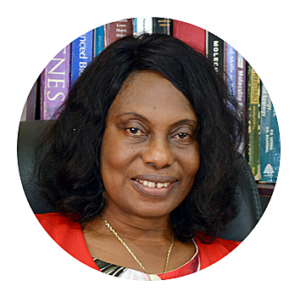
Prof. Nwuba (left) specializes in molecular and cellular parasitology and is investigating the twinning phenomena with a lens toward genetic influences.
She theorizes that a combination of underlying genetics and epigenetic changes caused by diet could be responsible.
This new study has its roots in an investigation conceived by Prof. Friday Okonofua. Now, with your support, these two Nigerian women are charging ahead with the rigorous scientific work that previous investigators did not.
Profs. Nwuba’s and Omonkhua’s labs are both well-equipped to meet this challenge, thanks to equipment from Instrumental Access.
The Centre of Excellence in Reproductive Health Innovation at UniBen, where Prof. Omonkhua is based, received an Instrumental Access shipment in August 2021. And UniMed, where Prof. Nwuba is Deputy Vice-Chancellor, received an Instrumental Access shipment for the Department of Biological Sciences in November 2019.
Powered by a $120,000, 2-year grant from the Nigerian TETFund, they are hoping to answer questions that have the potential to lead to new, personalized medicines for reproductive health.
“If a dietary factor is responsible [for DZ twinning] and we could isolate and characterize it, this could become very important in regulating fertility or treating infertility,” says Prof. Omonkhua.
When the tools match the talent
These two scientists have the right tools to see their research flourish.
In fact, the Instrumental Access awards allowed them to secure exactly the equipment they needed for this collaborative study. And their work has the potential to provide insight into new, cost-effective treatments for infertility.
Prof. Omonkhua hopes this research collaboration will eventually yield “cheap and easily accessible options for millions of Nigerians who cannot afford the prohibitive cost of assisted reproductive technologies.”
Without Instrumental Access, these talented researchers could not build on the earlier statistical work. Now, they can move into the lab to understand the biology behind Igbo-Ora’s unusually high rates of twinning.
Investing in these departments does more than supply equipment to solve this particular mystery…
Strengthening the scientific infrastructure in Nigeria is enabling these researchers and their students—the next generation of scientists—to follow their curiosity and address urgent issues with local and global relevance.
